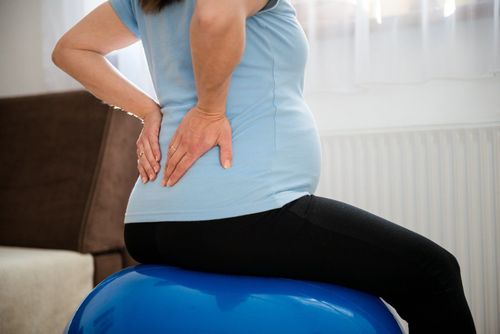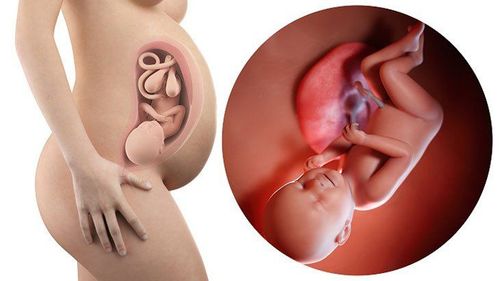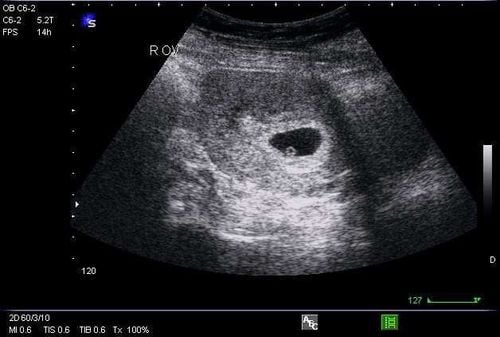As the pregnancy progresses, the frequency of lower abdominal pain increases. At 38 weeks, this pain could indicate labor or other health issues. In such cases, careful monitoring and hospital visits are necessary.
1. Causes of Lower Abdominal Pain in Pregnant Women
There are many reasons for lower abdominal pain in the final weeks of pregnancy, such as stress, anxiety, and the growing fetus causing pressure. If the pain is due to these reasons, it is a normal physiological phenomenon.
Pregnant women face danger when:
1.1 Continuous Physiological Contractions
Physiological contractions begin around the 33rd week. Normal contractions occur simultaneously, 1-2 times a day, and can appear randomly without a pattern. Therefore, in the final months, pregnant women should be cautious and avoid strenuous activities.
Sometimes, physiological contractions cause pain and numbness. Without support, this can be dangerous. The pain can make you tired or faint.
1.2 Signs of Labor
Labor contractions are different from physiological ones; they are intense and cyclical. Accompanying signs include mucus plug discharge, amniotic fluid leakage, or back pain in some cases.
If you experience any of these signs, it could indicate real labor. Quickly move to the nearest hospital or medical facility for a check-up.
1.3 Placental Abruption
Normally, the placenta detaches from the uterine wall during labor to allow the baby to be born. This detachment causes pain, accompanied by vaginal bleeding, back pain, and uterine contractions to expel the placenta.
However, if you experience placental abruption, it is a serious issue. This situation requires immediate attention to avoid life-threatening risks for both the baby and the mother. Do not ignore lower abdominal pain at 38 weeks or in the final month.
1.4 Urinary Tract Infection
A urinary tract infection can cause lower abdominal pain in pregnant women. Symptoms include burning during urination, reduced urine output, or unusual odor. In severe cases, the pregnant woman may have a fever, chills, severe abdominal pain, or even blood in the urine.
Urinary tract infections increase the risk of preterm birth, which is dangerous if the baby is not yet full-term. To minimize complications, quickly visit a clinic or hospital for a thorough examination.
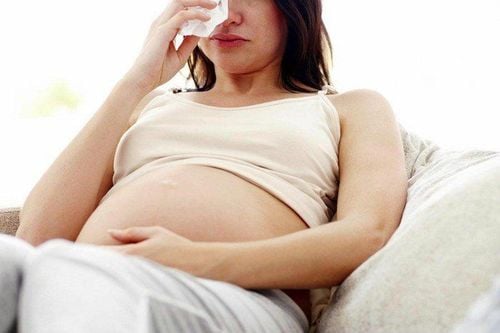
2. Precautions When Pain Occurs in the Final Months
Lower abdominal pain at 38 weeks of pregnancy is one of the body's adaptations to help you during childbirth. However, you need to closely monitor each pain episode to promptly address any abnormalities. Visit a doctor as soon as possible to rule out abnormal causes of lower abdominal pain and ensure the safest treatment plan.
In the final months of pregnancy, anxiety often arises in expectant mothers. Depression and weakened immunity are common, so consider supplementing with vitamins and nutrient-rich foods to support a healthy pregnancy.
To avoid early labor, reduce or avoid sexual activity when experiencing lower abdominal pain at 38 weeks. Additionally, as the fetus grows rapidly in the final months, move gently and maintain balance to prevent falls.
3. Essential Items to Prepare for Labor
Before labor signs appear, prepare essential items to aid in the birthing process. These include a bag for belongings, clothes for mother and baby, baby diapers and adult pads, a hat and mittens, umbilical cord bandages, swaddling blankets, wet wipes, a thermos, a toothbrush, toothpaste, and earplugs. Use button-up shirts for easy breastfeeding. If you do not have milk immediately, prepare a breast pump and formula to avoid hunger.
Additionally, important documents such as prenatal check-up records, ultrasound reports, blood test results, a photocopy of the household registration book, a copy of the ID card or citizen identification, and a copy of health insurance are crucial. These documents are necessary for the doctor to issue a birth certificate for the baby.
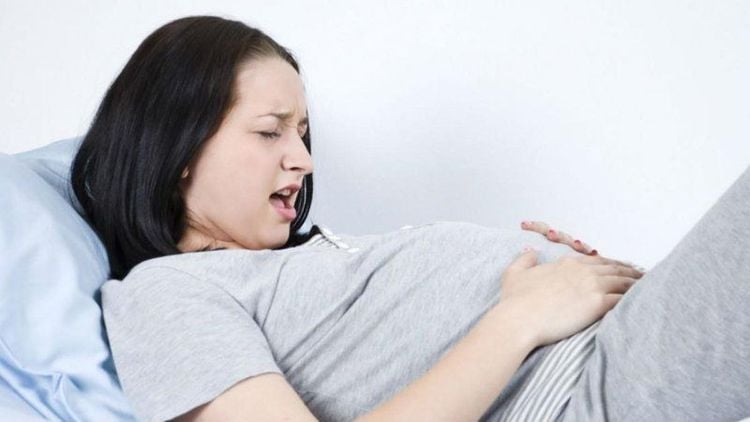
4. Tips for Less Painful Labor and Postpartum Care
To manage pain during contractions and ease labor symptoms, practice controlled breathing exercises. Breathe deeply and exhale to reduce tension and alleviate pain.
If opting for a natural birth, the doctor will wait for your cervix to dilate 7-10 cm before assisting with delivery. You may choose to have anesthesia depending on your health and pain tolerance. Modern anesthesia techniques effectively alleviate pain and help conserve energy during childbirth.
After the baby is born, doctors will cut the umbilical cord and suction any remaining amniotic fluid from the mouth or nose. In the first 24 hours, the baby will receive vitamin K and hepatitis B vaccine. The mother will stay in the hospital for monitoring until stable.
Colostrum is rich in nutrients and protects the baby from infections and allergies, laying the foundation for future health. The first breastfeeding may be challenging, but persist to help the baby nurse more.
After birth, move gently to help the uterus contract and recover faster. This also helps organs regain their original elasticity. However, avoid overexertion. Maintain good postpartum hygiene to prevent future health issues.
In the final three months of pregnancy, closely monitor the health of both mother and baby. Therefore, pregnant women should:
- Recognize real labor signs to reach the hospital in time, ensuring the baby's health.
- Differentiate between amniotic fluid leakage and vaginal discharge to address promptly, avoiding preterm birth, fetal distress, or stillbirth.
- Be cautious of bleeding in the final three months, requiring emergency care to ensure the safety of both mother and baby.
- Regularly monitor amniotic fluid levels.
- Track the baby's weight in the final three months to assess development and anticipate potential birth risks.
- Special monitoring groups, such as placenta previa or fetal growth restriction, require close supervision and appropriate medical advice.
- Differentiate between physiological contractions, labor contractions, and fetal movements to reach the hospital in time.
To arrange an appointment, please call HOTLINE or make your reservation directly HERE. You may also download the MyVinmec app to schedule appointments faster and manage your reservations more conveniently.






